7 Easy Ways to Get Rid of Garden Snakes, Pest Experts Say
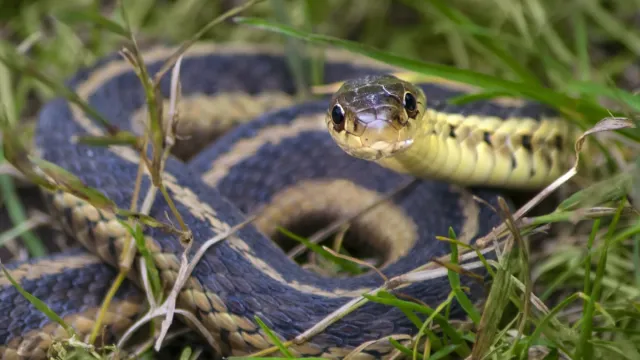
Many people have a deep-seated fear of snakes, but experts say that most varieties you’re likely to find in your garden get an unduly bad rap. However, it makes sense that people are fearful, given the fact that it can be hard to tell the difference between a venomous and a non-venomous snake. So, as the weather warms up and you start digging and planting in your yard, minimizing the presence of snakes can go a long way in ensuring your safety. If you’re ready to rid your garden of snakes for good, these are the seven best methods for keeping them away.
RELATED: 6 Top Signs There Are Snakes in Your Yard.
1
Clear away clutter.
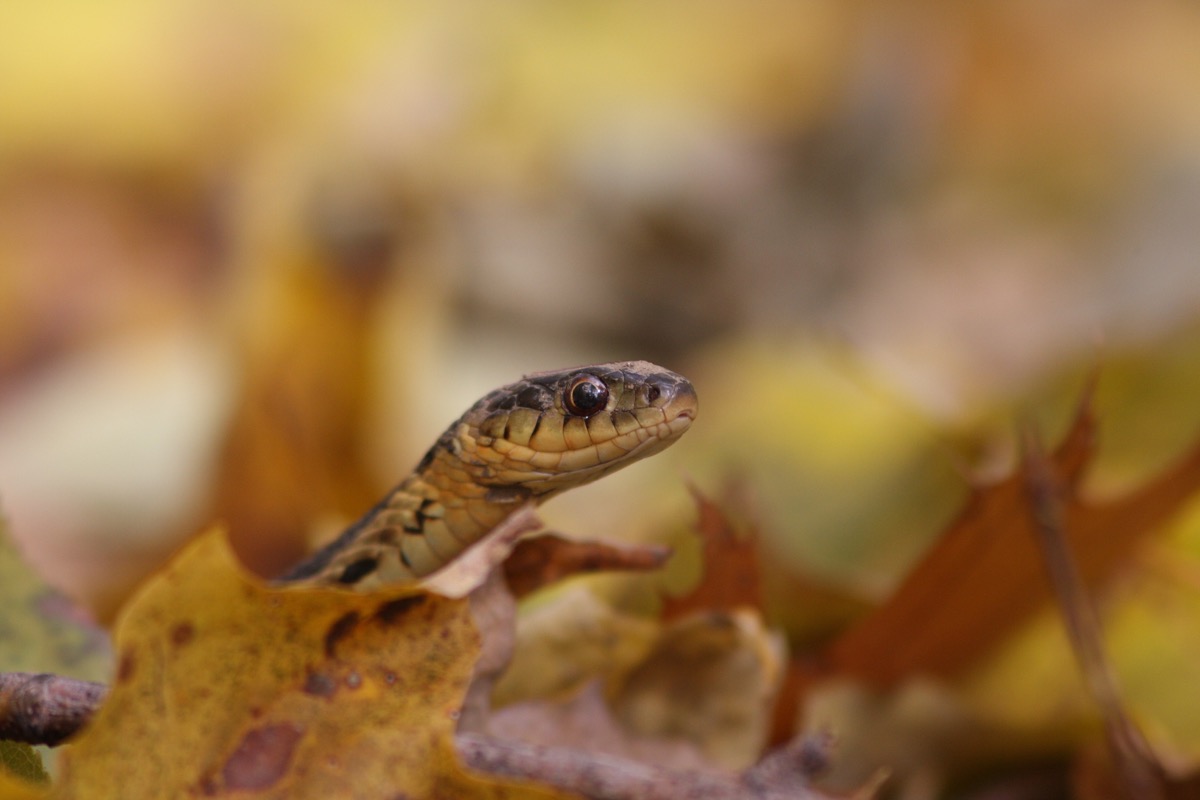
If your yard is filled with leaf piles or other debris, clearing it out can help eliminate places for snakes to hide, says Jamie Nichols, a senior service center manager with Arrow Exterminators.
“Remove clutter in and around the yard, such as woodpiles, brush piles, dense vegetation, and ground cover. Habitat manipulation is generally the best practice for minimizing snake encounters. This takes away hiding spots for snakes and their food sources,” he tells Best Life.
“Snakes adore cozy hideouts such as piles of leaves, tall weeds, and large rocks,” agrees Ismael Girard, CEO of Pest Agent. “Cleaning your garden and keeping it tidy will reduce the likelihood of snakes making your yard their home.”
2
Get rid of bird feeders.
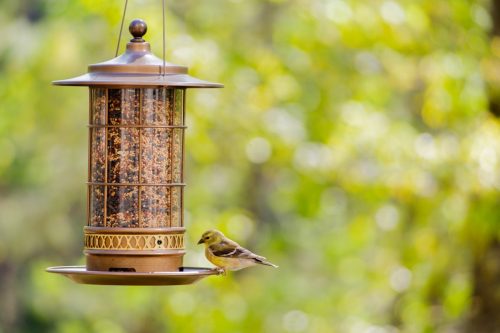
Next, you’ll want to remove their food sources—and just as importantly, their food sources’ food sources.
“Remove bird feeders or move them as far away from the home as possible A bird feeder is food for birds and squirrels during the day, but at night, other rodents will come into the feeder, making it a hunting site for predators,” explains Nichols. “Rodents like rats will eat the seeds, then the snakes will eat the rats. ”
To ensure you don’t have a larger pest problem around your garden, he recommends performing “regular inspections inside and outside your home for signs of rodents, such as droppings, holes in the insulation, or noises in or around your home.”
RELATED: How to Spot Snake Holes in Your Yard—and What to Do If You Find Them.
3
Fix drainage problems.
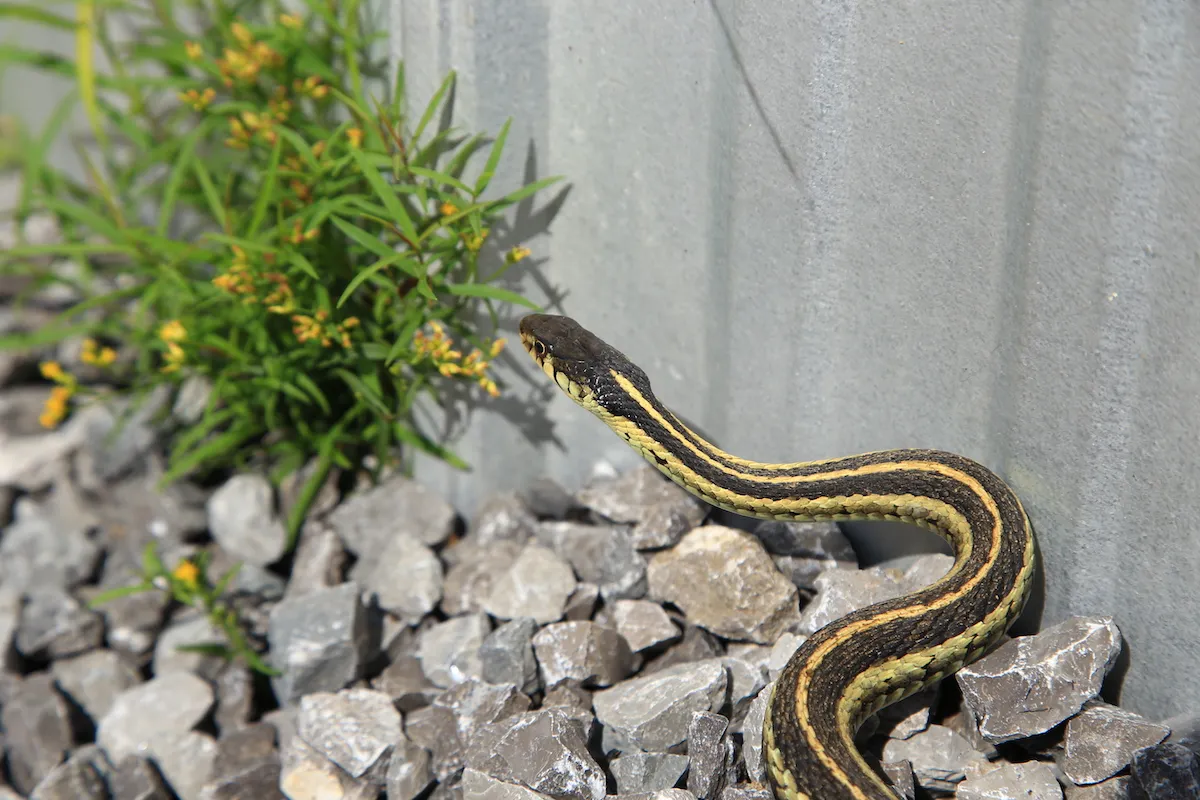
Addressing any draining problems around your property can also minimize your odds of attracting garden snakes, Nichols says.
“Check for drainage issues under sidewalks, patios, and driveways. If found, install pea gravel to fill these areas up. This takes away a potential snake harboring area,” he tells Best Life.
4
Install a fine mesh fence.
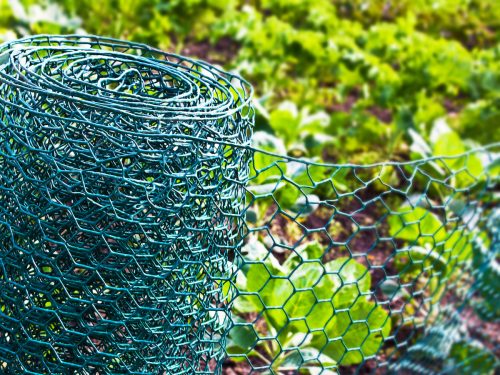
If you have a smaller yard that can be completely surrounded, Girard says that installing “a sturdy, fine-meshed fence can be key in keeping snakes at bay.”
The fence should be buried at least a few inches into the ground and stand about 24-36 inches high, he notes.
5
Introduce natural predators.

The experts say that introducing natural snake predators, such as cats or certain breeds of dogs, into your yard can help keep snakes away. “Their presence can discourage snakes from taking up residence,” says Girard.
RELATED: 8 Plants That Will Keep Snakes Out of Your Yard, According to Pest Experts.
6
Use snake repellents.
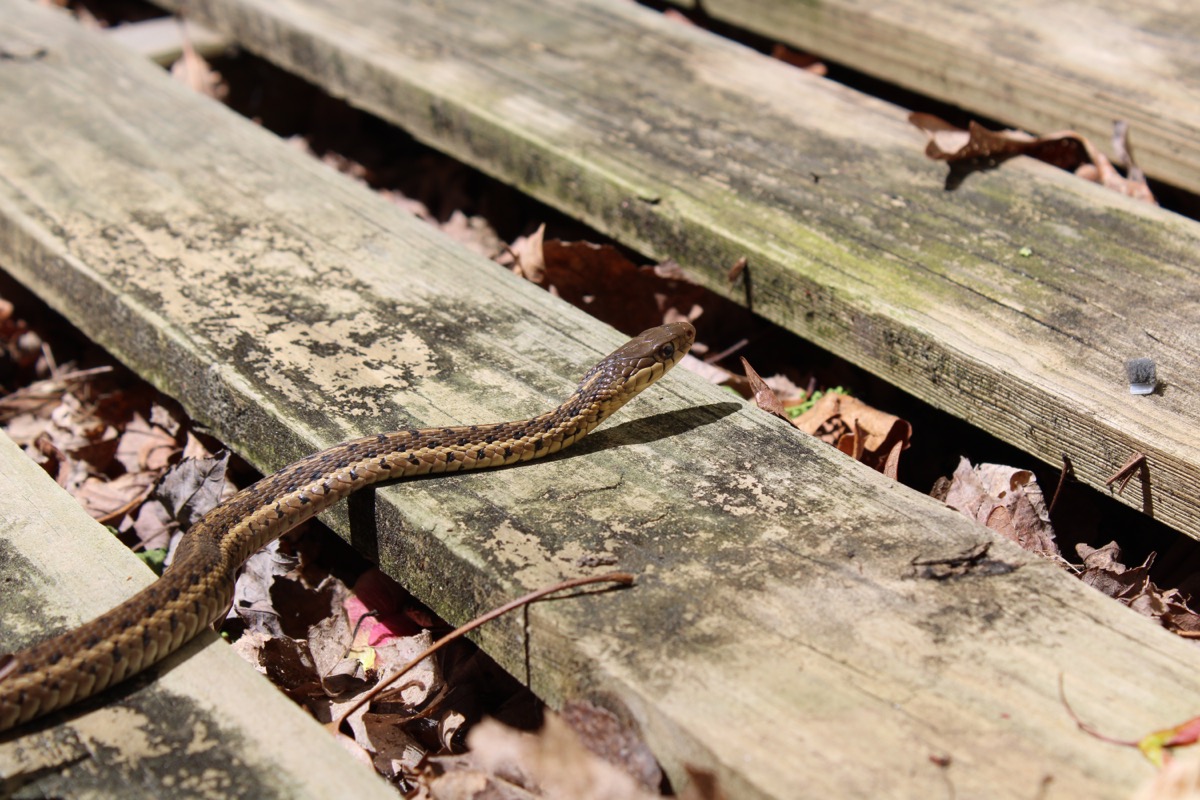
Strategically using snake repellents can also help to get rid of garden snakes.
“Snake repellents emit an odor that snakes find unpleasant, thus discouraging them from lurking around your yard,” says Girard. “Yet, remember their effectiveness varies based on the species of snake, climate conditions, and other environmental factors.”
7
Hire a pest control service.
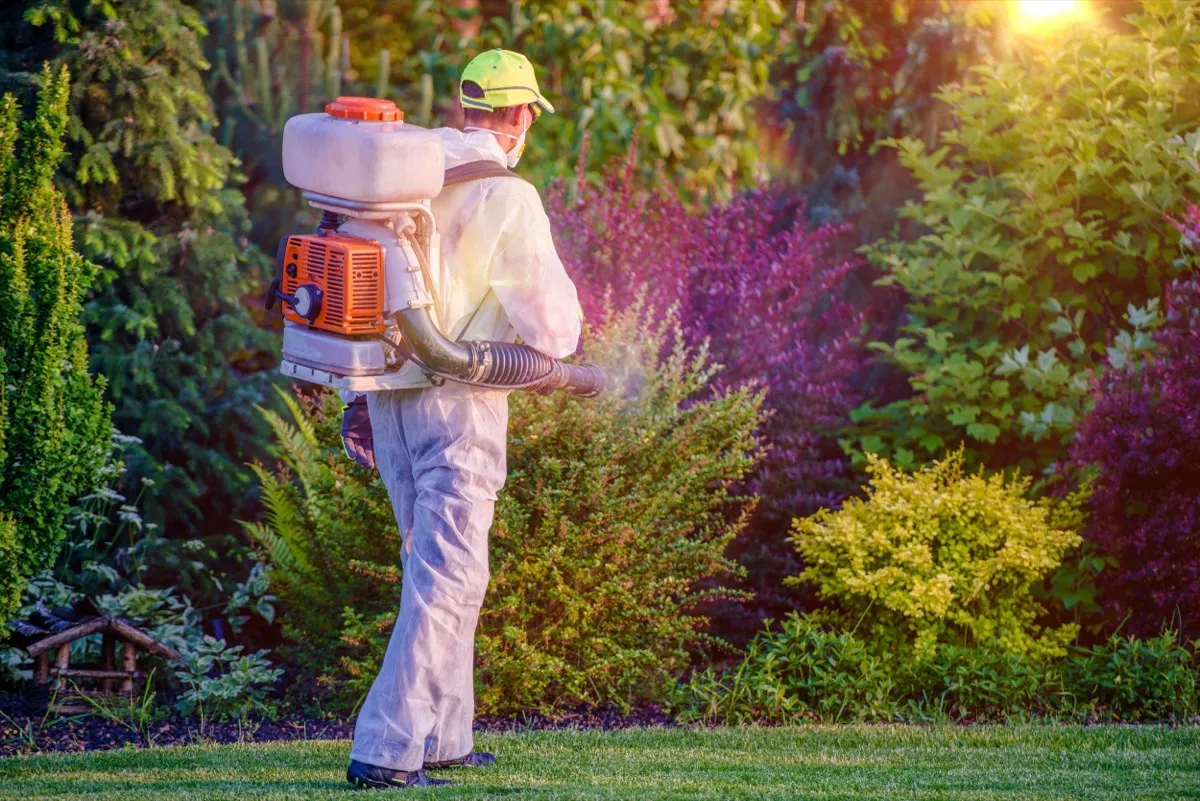
In some cases, you’ll need professional help to get rid of snakes in your garden. “This helps with eliminating food sources, puts an extra set of eyes on your home and property, and can alert you to concerning situations,” explains Nichols.
He says that a pest control service can also help address any underlying infestation that’s drawing snakes to your home. “It is unlikely that you’ll have a snake infestation if you don’t have a rodent problem,” he notes.
And even though most common snakes you’ll find in your garden are harmless, it’s always better to err on the side of caution and call in a pest expert, especially since it can be incredibly difficult to know the difference between a venomous snake and a non-venomous snake.
“Recognizing dangerous snakes can be challenging, as their appearance varies greatly,” explains Girard. “Typically, key signs to watch are the shape of the head and the pattern on the skin. Vipers, a common type of dangerous snake, have a triangular-shaped head.”
“However, harmless snake species may mimic these traits as a defense mechanism. Hence, it’s advisable to consult a pest expert upon spotting a snake, instead of risking a potentially dangerous situation,” he tells Best Life.